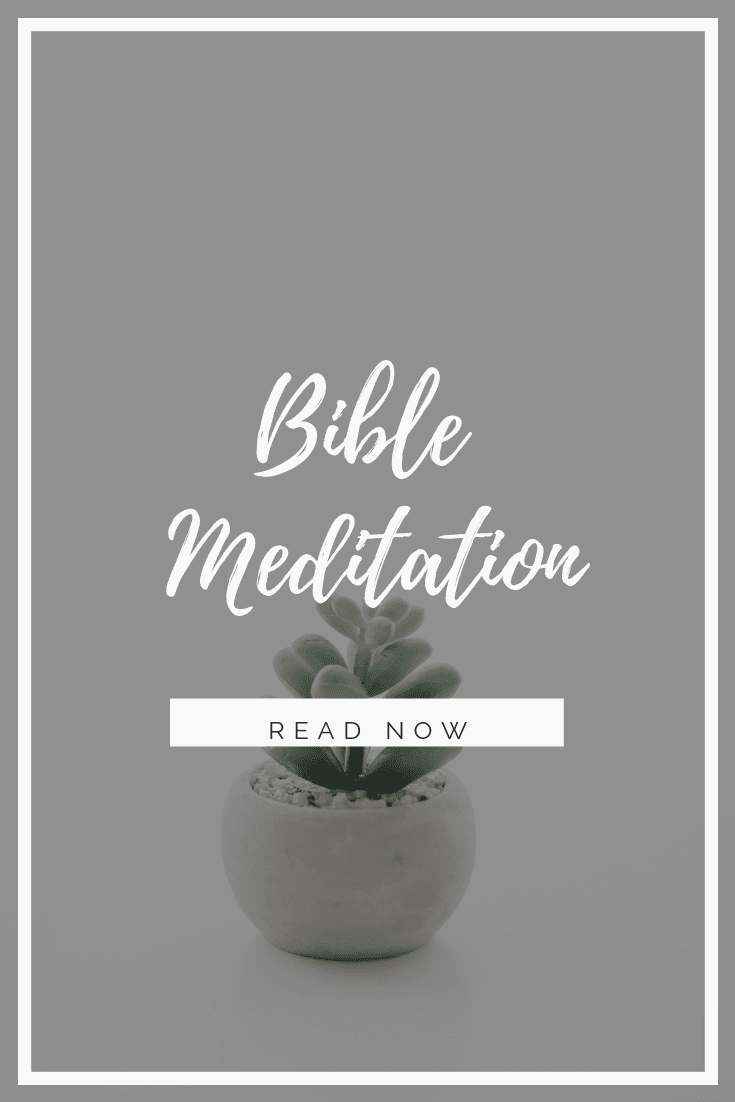Disclosure: Some affiliate links have been used within this post.

What is daily Bible meditation?
It means to meditate on the word of God. The dictionary defines the word “meditate” as: “to focus one’s thoughts on, reflect on or ponder over.”
I will meditate on your precepts and fix my eyes on your ways.
Psalm 119:15
For me, I consider meditating on God’s word as a slower form of Bible study. It’s a time when I slowly chew and savor the Word. I don’t want to rush through so as to miss something. And I prayerfully wait to learn from Him what I need to get from the passage.
Martin Luther considered prayer and daily Bible meditation as being closely intertwined. They go together. He wrote a letter to his barber who had asked him how to pray. This letter was turned into a book titled, “A Simple Way to Pray.”
In addition to thoughts on prayer, Luther wrote in the letter about how he meditated on scripture. He says:
“It is sufficient to grasp one part of a Bible verse or even half a part from which you can strike a spark in your heart…the soul, if it is directed towards one single thing, may it be bad or good, and if it is really serious about it, can think more in one moment than the tongue can speak in ten hours and the pen can write in ten days. Such a dexterous, exquisite and mighty instrument is the soul or spirit.”
When we desire to get the most out of a passage, applying the ACTS prayer model to what we have read will provide us an opportunity for real depth, scripture meditation, and insight into the Word. For those not familiar, the acronym is based on Jesus’ instruction to the disciples on how to pray. The letters stand for: Adoration, Confession, Thanksgiving, and Supplication.
Martin Luther’s method for daily Bible meditation on scripture was similar to the ACTS model.
Luther described in his letter to his barber this method for meditating on the commandments. He wrote that for each passage he read:
- He made “a garland of four twisted strands.” He took each passage and reflected on it first as teaching, reflecting on what God wanted him to learn.
- Next, he used the passage to find a reason for thanksgiving. Third, he used the passage as an opportunity for confession.
- Lastly, he asked himself how the passage showed him something he needed to ask God to do.
David loved the Word so much that he wrote Psalm 119 about this love, making it the longest chapter in the book of Psalms. May we also grow to love God’s Word more and more as we practice daily Bible meditation and slowly savor each word.

WICK
Tuesday 11th of October 2011
Good stuff. Sometimes we may prefer the "CATS" method also. Beginning with confession can really heal things between us as we come before Him in adoration. May God lift the veil as we seek His face...
Meredith
Monday 10th of October 2011
Wow -- this is great stuff. Very practical and applicable. I loved hearing how Martin Luther approached the passages.... I am going to try it! Thanks so much!!